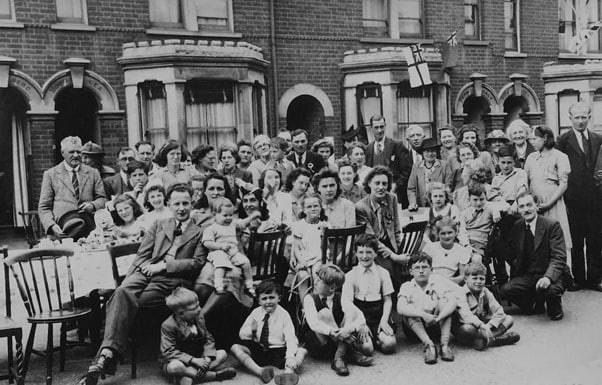Retired? Why Now is the Best Time to Write Your Autobiography
March 24, 2025
Have You Ever Thought About Writing Your Autobiography?
If you’re retired, now might be the perfect time. Many retirees find that their newfound time and freedom provide the ideal opportunity to share their life stories. Without the demands of a career or raising a family, you can reflect on your experiences from the perspective of the person you’ve become. Turning your life story into a meaningful narrative allows you to create a lasting legacy for your family and future generations.
Autobiography writing is more than just a pastime—it’s a journey of personal discovery, family connection, and creative expression. Whether you write for yourself, your loved ones, or a broader audience, chronicling your life can be a deeply fulfilling experience.
In this post, we’ll explore why retirement is an excellent time to write your autobiography and what you should consider before getting started.
Why an Autobiography? And Why Now?
Retirement offers something that earlier stages of life often don’t—time. With fewer daily obligations, you can focus on reflecting on your life experiences and the wisdom you’ve gained.

From this vantage point, you can recognize the patterns and themes of your journey in a way that wasn’t possible when you were younger.
Many well-known writers have published autobiographies during their retirement years.
Jane Fonda wrote My Life So Far at age 61.
Frank McCourt was 66 and retired when he published Angela’s Ashes, his acclaimed autobiography about growing up poor in Ireland.
But you don’t have to be famous to have a story worth sharing. You’ve lived through decades of experiences that have shaped who you are. Writing an autobiography allows you to preserve those stories and leave behind a legacy for your family and future generations.
In My Life So Far, Jane Fonda introduced the idea of a “life review,” which she defined as “active remembering.” This means looking back on your life with intention—essentially, the core purpose of autobiography writing.
This process can be transformative, helping you see your life as a cohesive story and empowering you to appreciate your experiences in a new way.
The Value of Writing an Autobiography in Retirement
Writing your autobiography isn’t just about recording events—it’s about making sense of your journey, sharing your wisdom, and leaving a lasting impact.
Here are some of the key benefits of embarking on this meaningful project.
Self-Reflection and Personal Growth
Writing an autobiography gives you the opportunity for deep self-reflection. As you recount your experiences, you’ll gain new insights into your choices, challenges, and defining moments. This process can be therapeutic, helping you make sense of your journey and find meaning in your past.

Preserving Family History
Your autobiography serves as a bridge between generations.
By documenting your life, you provide your children, grandchildren, and future descendants with a rich, personal account of their family history—one that goes beyond photographs and anecdotes.
Emotional Healing and Closure
Writing about your life can be a powerful tool for emotional healing. Revisiting difficult experiences can help you process unresolved emotions, gain closure, and find peace. It’s an opportunity to reflect on past conflicts, forgive, and make sense of challenging memories.
Creative Expression
Retirement is the perfect time to explore your creativity. Writing an autobiography allows you to shape your life story into a compelling narrative, deciding how to structure and present your experiences. It’s an art form that blends personal history with storytelling.
Social Connection
Sharing your autobiography can spark meaningful conversations with family, friends, and even new acquaintances. Your story may inspire others, offer comfort, or simply provide a unique perspective on life. Book clubs, writing groups, or family gatherings can become opportunities to discuss and share your journey.

Personal Achievement
Writing an autobiography is a major accomplishment.
It requires dedication, introspection, and effort, but the sense of pride and fulfillment that comes with finishing such a personal project is deeply rewarding.
Cognitive Benefits
Autobiography writing engages your brain by requiring you to recall memories, organize thoughts, and express them clearly. This mental stimulation can help maintain cognitive health and slow cognitive decline, keeping your mind sharp and active.
Publishing Potential
While publication isn’t usually the primary goal, some autobiographies do have commercial potential. Even if you’re not interested in traditional publishing, you might consider self-publishing or printing copies for family and friends.
Ready to Write Your Autobiography?
Before you begin, here are a few things to consider:
- What’s your “why”?
Why do you want to write your autobiography? Is it to share untold stories, reflect on your journey, or pass down life lessons? Clarifying your purpose will help guide your writing. - What major life events do you want to include?
Consider the key moments that have shaped your life—your childhood, education, military service, career, relationships, travels, or other defining experiences. Make a list to help structure your autobiography. - What themes or lessons do you want to convey?
Reflect on the insights you’ve gained over the years. Are there overarching themes or values that have guided your decisions? What wisdom do you want to share? - Who are the key people in your story?
Identify the individuals who have had the greatest impact on your life and consider how their presence shaped your journey. - How will you structure your autobiography?
You can tell your story chronologically, but there are other options. You might organize it around major life themes, specific decades, pivotal relationships, or defining experiences. If you were an entrepreneur or leader, you may want to focus on the lessons and principles that guided your career. - Create a preliminary outline.
Start jotting down notes and memories in these key areas. Often, this simple exercise will trigger more memories and ideas. - Consider professional writing help.
You don’t have to be a writer to create a great autobiography. Many professionals can assist you in shaping and refining your story.- If you want to write it yourself but need guidance, a writing coach or editor can help you stay on track and enhance your storytelling.
- If writing isn’t your strength, a professional ghostwriter can work with you to develop and write your autobiography in your authentic voice.
The right collaborator can make all the difference, so explore your options to find the best fit for your needs.
The Best Retirement Gift You Can Give Yourself
Writing your autobiography—whether on your own or with professional assistance—is one of the most meaningful and fulfilling projects you can undertake in retirement.

Not only is it a creative and enjoyable process, but it also provides a lasting legacy for your family.
Most importantly, writing your story can be an empowering experience, offering you new insight and appreciation for the extraordinary life you’ve lived.
Now is the perfect time to begin.































